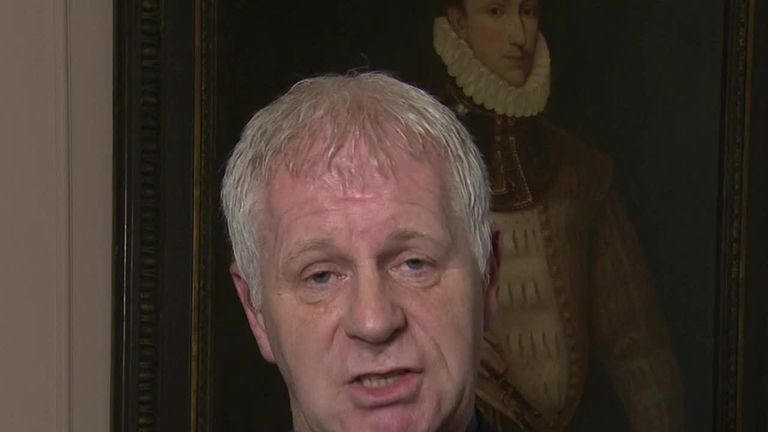From fake news to self-harm: How government plans to crack down on social media

Sunday 7 April 2019 04:12, UK
Faced with almost daily revelations about everything from data leaks and hacking scandals to cyber-bullying and child sexual abuse, the government has been talking tough on big tech.
This week, action will finally arrive in the form of an internet safety white paper, which Sky Sources say aims to hold platforms like Twitter and Facebook responsible for the content that appears on them.
So what has the government got planned? And why is the clamour so great for tighter regulation?
Why the government wants to regulate social media
Pressure on the government to regulate social networks has been mounting.
The Cambridge Analytica scandal, which saw data harvested from tens of millions of Facebook users, shook the faith many people had in such platforms.
It led to a long and damning inquiry by the digital, culture, media and sport committee, which later filed a report into how disinformation and fake news can be spread online.
In his conclusion, chairman Damian Collins MP warned that "democracy is at risk from the malicious and relentless targeting of citizens with disinformation", much of which is delivered via social media.
There was further criticism of the web giants earlier this year over the prevalence of self-harm and suicide images on platforms such as Instagram.
It followed the suicide of 14-year-old Molly Russell in November 2017. Recently her father said Instagram was partly to blame for her death.
And just last month, the New Zealand terror attack was live-streamed by the gunman on Facebook.
It prompted New Zealand to quickly introduce new laws that could imprison social media executives if they allow violence to be streamed on their platforms.
What is in the white paper
The full breadth of the proposals will not be known until the white paper is published on Monday, but elements of it have been leaked.
According to the Guardian newspaper, the plans include:
:: An independent regulator with the power to impose fines and hold individual executives liable for content deemed dangerous or inappropriate.
:: The government being able to ask the regulator to look at specific issues, such as child sexual exploitation.
:: Co-operation with the police and other enforcement agencies to tackle criminality - for example, the sale of weapons or terrorist activity.
:: Annual "transparency reports" to be published by the social media companies, in which they reveal the scope of harmful content on their platforms and what they are doing about it.
:: Compliance with a new code of practice, that will feature steps to combat fake news.
The planned regulator is likely to be a new body, set up specifically for the regulation of online platforms.
But in the meantime, it is likely that Ofcom - the TV regulator - will take on the responsibility.
Sky sources say that the white paper will be subject to a 12-week consultation upon its release, so there will be time for tech firms to voice their objections before any of the proposals become law.
How much regulation can we expect
We have heard plenty from Home Secretary Sajid Javid and Health Secretary Matt Hancock in recent months over the need to regulate social media companies.
But while cases such as that of Molly Russell have accelerated the debate, these proposals are not new.
During the 2017 general election campaign, Theresa May said she wanted Britain to be a world leader when it came to the regulation of the internet.
The Conservative manifesto stated: "Some people say that it is not for government to regulate when it comes to technology and the internet. We disagree."
There are concerns that plans outlined in the white paper may open the door for further regulation down the line.
The government has previously expressed concerns over social media providing a "safe space" for terrorists to communicate, prompting speculation that messaging services that offer end-to-end encryption could be banned.
WhatsApp and iMessage are among those that do, and Facebook has pledged to introduce new encryption so strong that even company bosses will not be able to penetrate it.
What do the tech companies make of it
Few find themselves under the spotlight more often than Facebook boss Mark Zuckerberg when it comes to the role of big online companies in policing content on the internet.
It would appear that the constant scrutiny has weakened his resolve, as he recently indicated that he would be more than happy for governments and regulators to play "a more active role".
In an open letter, he said new regulation was needed in four areas: harmful content; political advertising and protecting election interference; privacy and data protection; and "data portability".
The latter is a term coined for how users can easily move data between different services.
He also urged all internet companies to publish quarterly reports on how effectively they remove such content, similar to the "transparency reports" reportedly set to feature in the white paper.








